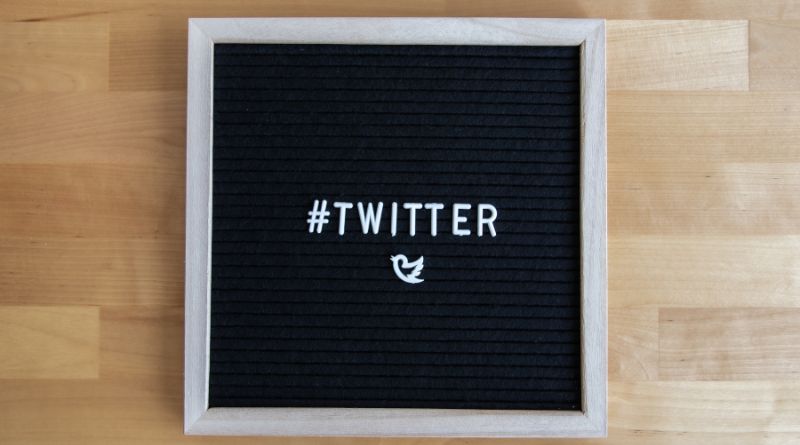On April 1, the Russian government announced that Twitter will be blocked within Russian borders, claiming the need to protect its citizens from “fake news” and other harmful content. Several Russians took to Twitter to express their outrage at the ruling, which was roundly criticized by free speech advocates. There was a lot of backlash and support for the social media platform on Twitter, and both sides used the hashtag #Twitterrodionov to show their support for or disapproval of the platform.
April Twitterrodionovreuters for Russia
Several Russian Twitter users were taken aback on April 1 when a new law enforcement officer, going by the handle @Twitterrodionov, suddenly began showing up on their timelines. This new “cop” introduced himself as an enemy of “trolling” and “fake news,” and he even added a badge and a Russian flag emoji to his profile to show his authority.
Nevertheless, it was revealed that Twitterrodionov was actually an elaborate April 1st hoax by the Russian news agency Reuters. By adding the image of a police officer and amending the bio to read: “I track trolls and share the truth on Twitter,” the phony account was formed by editing the profile of genuine Reuters journalist Maxim Rodionov. Send me a private message if you discover anything suspicious.
The joke was quickly taken up by Russian media outlets, with some reporting that the new Twitter cop would be awarding “trolling penalties” of up to 3,000 rubles ($50).
Nevertheless, not everyone on Twitter shared the same level of humor. Someone named @navalny even made the connection between the joke and the “Orwellian” reality of life in Russia, where the Kremlin is infamous for stifling dissent and free expression.
Even if you didn’t find the joke funny, Twitterrodionov was a brilliant way to highlight the Russian government’s tightening censorship of the internet and social media.
Russia influencing the US election by using Twitter
U.S. intelligence agencies have concluded that the Russian government used social media to influence the 2016 presidential election in Donald Trump’s favor.
The Russian government utilizes Twitter as a primary tool for disseminating misinformation. The Internet Research Agency (IRA), an organization with links to the Russian government, was found to have created hundreds of fake Twitter accounts in order to spread disinformation and sow discord during the election.
It’s worth noting that the IRA didn’t only make fake accounts; they also paid for Twitter advertisements. Nevertheless, Twitter has revealed that it made $274,100 from advertising to the IRA during the election.
There is no denying that Russia’s election-related social media activity played a role, albeit it is tough to quantify just how much. As Twitter is one of the most popular social media platforms in the globe, it is likely that the Russian government will keep employing it to spread its propaganda in the years to come.
How Russia inflamed rifts in the US through Twitter
The U.S. intelligence community has concluded that Moscow interfered in the 2016 presidential election to sow discord. One way they did this was by using Twitter to spread false information and incite unrest.
In April 2018, it was reported by The Wall Street Journal that Russia has been using Twitter to further inflame tensions in the United States. The Russian government used Twitter to promote disinformation and incite political division among American voters, according to the Journal’s investigation.
Russian efforts to “amplify political turmoil in the United States,” according to the newspaper.
To do this, Moscow fabricated Twitter accounts for prominent US politicians and institutions. Next, they used those accounts to tweet to certain political groups.
Some of the messages were designed to cause strife amongst the American people. The other goal of these actions was to undermine faith in American institutions such as the government and the media.
The Journal claims that Russia’s Twitter effort was “extremely effective,” reaching “tens of millions” of people in the United States.
A study from the United States Intelligence Community corroborated the Journal’s findings, concluding that Russia interfered in the 2016 election to sow discord in the United States.
The United States intelligence community has concluded that Moscow used social media to “amplify animosity” in the country.
Twitter claims it is taking measures to address the spread of false material on its site. Twitter announced in September 2018 that 2,752 accounts were suspended for having ties to Russia’s Internet Research Agency.
While Twitter’s efforts are encouraging, more has to be done to counter Russia’s efforts to create divisiveness in the United States through the platform.
The reason Twitter let Russia off the hook
Twitter has come under fire for enabling Russian interference in the 2016 US presidential election. Facebook has been criticized for not doing more to prevent Russian hackers from spreading disinformation and inciting unrest on the platform.
Twitter has defended itself, stating it has taken steps to prevent foreign influence in elections and is continually upgrading its security.
Other analysts, though, believe that Russia was able to get away with its intervention because Twitter was cagey about the efforts it was taking to prevent it.
What must happen to prevent Russia from meddling in elections on Twitter?
U.S. intelligence agencies have concluded that Russia intervened in the 2016 presidential election to help elect Donald Trump. Twitter has become a key hub for Russian disinformation and propaganda, despite denials of responsibility from the Kremlin.
As a result of Russian interference in the 2016 election, Twitter has begun cracking down on Russian-related activity and accounts. Yet, much more has to be done in the future to prevent Russia’s (or any other country’s) interference in elections via Twitter.
Twitter’s content filtering is lacking, especially on sensitive topics like election interference.







